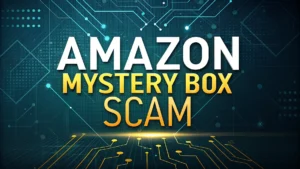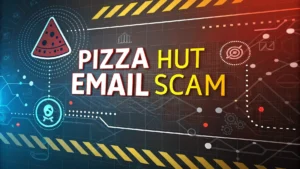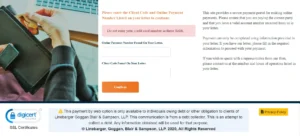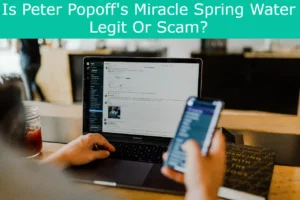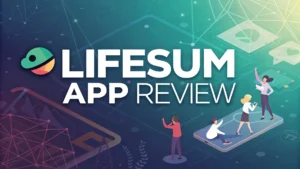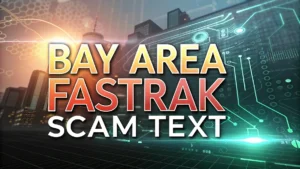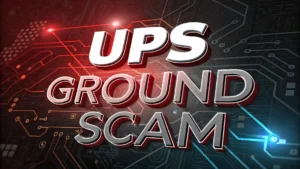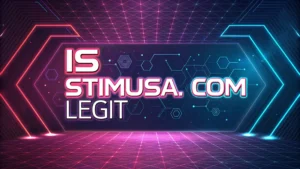Are you worried about getting caught up in an Illinois traffic ticket scam? You’re not alone. With more people turning to the internet for quick solutions, scammers are finding clever ways to trick drivers into giving away their money and personal information.
In Illinois, reports of fake traffic tickets have been rising. These scams often start with a surprising email or text message claiming you owe money for a violation you never received. If you’re not careful, you could end up paying hundreds of dollars to criminals instead of the state.
This guide will walk you through everything you need to know about these scams. We’ll explain how they work, what signs to look for, and most importantly, how to protect yourself. By the end of this post, you’ll feel confident recognizing and avoiding these threats.
Key Takeaways
- Always double-check the source before responding to any traffic ticket notice sent by email or text.
- Never click on links from unknown senders, especially if they claim to be from official agencies like the Illinois Department of Transportation.
- Keep your personal information private and avoid sharing it unless you’re certain who you’re dealing with.
- Use only official government websites when paying fines or checking violations.
- Report suspicious messages to local authorities or the Illinois Attorney General’s Office immediately.
These simple steps can help you avoid becoming the next victim of an Illinois traffic ticket scam.
What Is an Illinois Traffic Ticket Scam?
An Illinois traffic ticket scam is a type of fraud where criminals pretend to be official agencies to get your money or personal details. They often use emails, texts, or even fake websites that look real. Their goal is to make you believe you’ve broken a traffic law and must pay a fine right away.
These fake notices may include logos, legal language, or urgent warnings to scare you into acting quickly without thinking. Some even link to payment pages that look official but are designed to steal your credit card info.
Victims might receive a message saying they ran a red light or parked illegally, even though they didn’t. If you ever get a notice like this and aren’t sure if it’s real, always go directly to the official Illinois transportation website to verify.
Staying alert and knowing how these scams work is your best defense against falling for one.
How Do These Scams Start?
Most Illinois traffic ticket scams begin with a message that looks official. It could come via email, text, or even social media. The message usually claims you’ve committed a traffic violation and must pay a fine within a short time.
The wording sounds urgent and often includes a link or phone number to contact. Once you click the link, you may be taken to a fake website that asks for personal details or payment. In some cases, the site downloads malware onto your device.
Scammers design these messages to look like they come from real government offices. They copy logos, fonts, and even email addresses that seem close to official ones. That’s why it’s important to double-check every notice before taking action.
If something feels off—like poor grammar, strange sender address, or pressure to act fast—it’s better to ignore it and reach out to the official office directly.
Common Signs of a Fake Ticket Notice
Knowing the signs of a fake Illinois traffic ticket notice can help you avoid being scammed. First, check the sender’s email address or phone number. Scammers often use addresses that don’t match official government domains like “@illinois.gov.”
Next, watch for urgent language. Messages that say things like “Pay now or face arrest” are likely fake. Real government agencies won’t threaten you with jail time over email.
Also, look at the spelling and grammar. Many fake notices have small mistakes that official documents wouldn’t. Another red flag is a link asking for immediate payment. Legitimate agencies let you look up your violations online without clicking random links.
Lastly, if the message doesn’t include specific details like your license plate number, date, or location, it’s probably a scam. Always confirm the notice through the official Illinois transportation portal before doing anything.
Why Are People Falling for These Scams?
Many Illinois drivers fall for traffic ticket scams because they appear very real. The messages are carefully designed to mimic official notices. They use real logos, correct names of departments, and even accurate-looking forms to trick people.
Another reason is fear. When someone gets a notice saying they broke the law, they might panic and act without thinking. Scammers play on this by creating urgency. They tell victims they must pay right away or face serious consequences.
Some people also trust technology too much. They assume if something comes through email or text, it must be true. But scammers can easily fake these channels.
Finally, many victims don’t know how to check if a notice is real. Without proper awareness, it’s easy to click a link and enter personal or financial details. That’s why staying informed is so important.
Real Examples of Illinois Traffic Ticket Scams
There have been several reported cases of Illinois drivers receiving fake traffic tickets. One person got an email claiming they had run a red light in Chicago. The message included a photo of their car and a link to pay the $150 fine. When they tried to look it up online, there was no record of the violation.
Another driver received a text saying they had unpaid parking tickets and would be towed if they didn’t pay immediately. The link led to a fake payment page that asked for credit card details.
In another case, a scammer created a website that looked exactly like the Illinois Secretary of State’s portal. Drivers were redirected there after clicking a search result and asked to enter personal data to check their records.
These examples show how convincing these scams can be. Even smart people can be fooled if they don’t know what to look for. Always take time to verify before clicking any links or entering sensitive information.
How to Protect Yourself from Ticket Scams
To stay safe from Illinois traffic ticket scams, always be cautious with unsolicited messages. If you get an email or text about a ticket, don’t click any links. Instead, go directly to the official Illinois transportation website to check for any violations.
Make sure you know the real email addresses and websites used by Illinois government offices. Official emails will usually end in “@illinois.gov” or “@dot.state.il.us.” Never share personal or financial information unless you’re certain the request is real.
You should also set up alerts for your accounts. Many banks and credit card companies offer fraud detection services that warn you of unusual activity.
Lastly, report any suspicious messages to the Illinois Attorney General’s Office. Your report can help stop others from falling for the same scam. Being proactive is your best protection.
What to Do If You’ve Been Scammed
If you think you’ve fallen for an Illinois traffic ticket scam, act quickly. First, check your bank account or credit card statements for any unauthorized charges. If you see anything suspicious, contact your bank or credit card company right away to report the fraud.
Next, file a report with the Illinois Attorney General’s Office. You can do this online or by calling their consumer protection hotline. Also, report the scam to the Federal Trade Commission at ftc.gov/complaint.
If you gave out personal information like your Social Security number or driver’s license, consider placing a fraud alert on your credit report. You can do this by contacting one of the major credit bureaus—Equifax, Experian, or TransUnion.
Don’t panic, but take action as soon as possible. The faster you respond, the better your chances of limiting damage and recovering any lost funds.
How Illinois Authorities Are Fighting These Scams
Illinois officials are working hard to stop traffic ticket scams and protect residents. The Illinois Attorney General’s Office regularly issues public warnings to inform drivers about new scam tactics. They also partner with local police departments to investigate and track down scammers.
One major effort involves educating the public through news releases and social media updates. These resources teach people how to spot fake notices and report them quickly.
In addition, Illinois has strengthened cybersecurity measures for its official transportation and law enforcement websites. These upgrades help prevent hackers from copying or redirecting users to fake versions.
Authorities also encourage citizens to report suspicious messages. Each report helps build a clearer picture of scamming patterns and leads to better prevention strategies.
By staying informed and working together with officials, Illinois residents can reduce the impact of these scams and keep their personal information safe.
Tools and Resources to Stay Safe Online
Several tools can help Illinois drivers avoid traffic ticket scams and protect their personal information. One of the best is a reliable antivirus program. These programs detect and block malicious websites and phishing attempts before they cause harm.
Email filters are also useful. Most email providers offer built-in spam filters that catch fake notices before they reach your inbox. You can also set up custom rules to flag messages from suspicious sources.
Two-factor authentication adds another layer of security to your online accounts. This means even if a scammer gets your password, they still can’t access your account without a second verification step.
For added safety, use a password manager to create strong, unique passwords for each website you visit. This reduces the risk of identity theft if one of your accounts is compromised.
Finally, keep your software updated. Outdated systems are easier for hackers to exploit. Set your devices to update automatically whenever possible.
Frequently Asked Questions (FAQs)
What should I do if I get a suspicious traffic ticket notice?
If you receive a questionable notice, do not click any links. Go directly to the official Illinois transportation website to check for violations.
How can I tell if a traffic ticket email is fake?
Check the sender’s email address, look for spelling errors, and avoid clicking links. Real notices won’t ask for immediate payment through suspicious links.
Can I get my money back if I was scammed?
Yes, contact your bank or credit card company immediately. You may also file a report with the Illinois Attorney General’s Office and the FTC.
Where can I report fake traffic ticket scams?
You can report scams to the Illinois Attorney General’s Office, the Federal Trade Commission, or your local police department.
Are these scams common in Illinois?
Yes, fake traffic ticket scams are increasing across the state. Staying informed and cautious is the best way to protect yourself.


